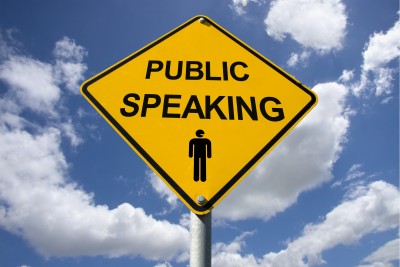Tips for public speaking
 This week I’m going to cover something that many people have a lot of trouble with: public speaking.
This week I’m going to cover something that many people have a lot of trouble with: public speaking.
I compiled these tips while participating in a Toastmasters group while on co-op, which culminated in a speech competition. I received a lot of advice and feedback on my speeches, and have compiled it into a quick blog post.
I want to start by saying that public speaking is just like any other skill, you get better through practice. I used to be terrified of it like anyone else, but after getting up in front of our work group a few times and receiving compliments and advice, I found I was actually starting to really like public speaking, something I’d thought was impossible before then. I’ve got good news for any students who want to improve their public speaking skills: UVic has their own Toastmasters group.
Next, don’t worry about feeling nervous. As long as you are prepared and excited about what you’re talking about, the nerves will just turn into adrenaline and energy, which will make your presentation more engaging and believable.
A lot of resources recommend being very well prepared and practicing speeches repeatedly, but I’ve found that method just trips me up as I try to remember line for line what I wanted to say.
Instead, I make sure I know the message that I want to get across and have the bullet points of the important topics in my head as I go. Preparing in this way has the added benefit of making it easier to answer questions about the subject, as they just become another bullet point in your speech. However, this skeleton approach means there’s generally quite a lot of improv in my speeches, and that approach probably doesn’t work for everyone.
Finally, some other quick tips that I have found absolutely invaluable are:
- Eye contact is crucial. Make sure you spend more time scanning the audience and creating a visual connection with them than reading or notes or looking at the ground.
- Don’t be afraid to pause. If you need a moment to find a word or collect your thoughts, don’t draw out an ummm or an ahhh, it’s more than alright to use periods of silence to allow your audience to absorb your speech.
- Related to the last point is to ensure you end your sentences. Don’t continuously link your thoughts together with ‘and’, ‘or’, ‘so’, or any other joining word.
I hope you have found these tips helpful, and I certainly encourage anyone who is interested to check out the UVic Toastmasters club.



